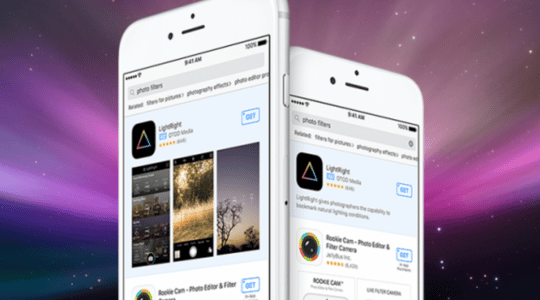In this installment of App Marketing Conversations, our CEO, Ian Sefferman (@iseff) discusses reports of a recent change in the the app store search ranking algorithm. He is joined by Ryan Morel (@rmorel) of Gamehouse (@ghpartners) and Robi Ganguly (@rganguly) of Apptentive (@apptentive).
Transcription
Ian: Hello, and welcome to another App Marketing Conversations. As always, I’m Ian Sefferman, CEO of MobibleDevHQ, here with Robi Ganguly of Apptentive . . .
Robi: Morning.
Ian: . . . and Ryan Morel of GameHouse.
Ryan: Hi.
Ian: How are you guys doing?
Ryan: Well.
Robi: Fantastic. College football started, right?
Ian: College football started. I’m representing Arizona today, and that is not an endorsement of Rich Rod. It is an endorsement of Arizona, and it’s a much smaller endorsement of what we’ll be shown tomorrow when Michigan plays.
Ryan: Does Ashley make you do that? Did she buy you that shirt?
Ian: She did buy me the shirt, but I bought her a Michigan one in return. We enforced that we must wear the gear on game days. If they’re both playing Saturdays, then you get to wear whatever you want.
Ryan: Are these rules written down?
Ian: No, these are not written down.
Ryan: Just understood.
Ian: Yes, very much understood.
Robi: Might have to revisit this to see how many fights have broken out.
Ian: I don’t know why we’re talking about this right now, but apparently Rich Rod, as part of his contract with Arizona, put in there that Arizona will do whatever it can to get a revenge game against Michigan within his first four years.
Ryan: I think that’s great.
Ian: So far, it’s not scheduled. Okay. Anyways, enough about college football. There was an interesting report that was found this week, or maybe it was late last week, that the Top Charts rankings have changed in iOS land. In particular – there’s a TechCrunch article about this – what looked to have happened is that your rating is now impacted in your Top Charts. Secondarily, search rankings also changed. Where it used to be such that, back in the day, if you searched for an app on the desktop, that would be the same results that you would get on your phone. Then, they split those up, and then it became if you searched for an iPhone app on the iPad, that would be the same results that you would get if you searched on an iPhone. Now, those two are completely separate as well. So we’re seeing Apple put resources into better discovery mechanisms in some way. What’s the top-line summary that you think of as a marketer when you hear this stuff?
Ryan: The first thing I think of is that your marketing efforts continue to be important in order to get discovered, but the engagement factor and kind of the little things are ultimately going to matter most in the long term.
Robi: I think that the first reaction I had was, “It’s about time.” I think we talked a little bit ago about how Google Play’s rankings have become more personalized much more quickly. So it felt like only a matter of time. The second thing is it feels like it’s going to be less easy to game it with money.
Ian: Right.
Ryan: Yeah.
Ian: That’s the key thing to me right now is that, to me, a huge percentage of the performance-based marketing in the app world is structured solely around rank position, where they know that if they can get to a certain rank position, they’ll get a bunch more downloads, thus reducing overall CPI by half or a third or whatever it is. So they just simply spend money. If they know the CPI is less than lifetime value, you’re good to go. It starts to signal, to me, the end of Top Charts, where, just like we saw on the Web 10 years ago, 15 years ago, having a directory listing like Yahoo! did and with a “What’s Hot” of the day is interesting, but fundamentally fails on a large scale. First of all, do you believe that line of thinking?
Ryan: Yeah.
Ian: So if you believe that line of thinking, what’s the logical step that Apple would take or Google would take in a post-top charts world?
Ryan: I’m not sure I really buy that the top charts will go away. I think they’ll always be available in some form or another. It’s kind of like The New York Times Bestseller List, but that’s not really how people discover books at this point. Or maybe it is, I don’t know. So I don’t think they’ll go away, but I think there will be more of an emphasis placed on the editorial curation that Apple and others do, especially game developers, and the opportunities they have to engage users inside their app to find new content. Then I think Apple will just continue to refine and make the search function better. That’s the only way to really do it.
Ian: Yeah. That brings me to search becomes super important in the long term.
Robi: Yeah. The thing about the Yahoo! directory is that it’s still actually pretty meaningful for Yahoo! and many other sites. MSN and Yahoo! are two strong examples of content where there is a lot of the top list nature of how they program it. But over time, what they’ve done is they’ve inserted more personalization algorithms into it. So when I log in to yahoo.com with my Yahoo! account, I see something different than you might. I might see overlapping 60% to 70%, but that 30% that differs is pretty important, and I suspect that iTunes is trying to get there.
Ian: Totally agree.
Ryan: I think that we’ve talked about this a little bit in the past. This is all a consumer thing. It’s not a developer thing. Apple and Google do not care that you, as a developer, think discovery is broken. Don’t care. They do care about consumers finding and consuming more content, so that’s what all of that’s focused on.
Ian: I think that they care that meaningful discovery vectors are not gamed completely, especially if they are not bought by giving money to Apple. I’m sure that they can figure out a way where you can purchase space somewhere, but if you’re just purchasing space from some third party that they don’t even like, like Tapjoy, they really don’t want that.
Ryan: Back in the good old days of mobile games, carriers would literally sell spots on their deck, and it would be like $25,000, $50,000 a week. It’s not enough money for Apple to do that, but there’s just the fundamental shift in thinking from a distribution standpoint of, “Let’s just sell this spot,” to Apple would probably go, “We want to put the best content there,” as opposed to generating [cash].
Ian: Super interesting stuff, I think. We’ll continue to talk more in Robi’s segment about this. There’s a TechCrunch article, which we’ll link to in this post. A small quote by me in there about the search changes. Read that, watch the other segments, like this video, and we’ll see you soon. Thanks.
Robi: Thank you.
Author
Becky is the Senior Content Marketing Manager at TUNE. Before TUNE, she led a variety of marketing and communications projects at San Francisco startups. Becky received her bachelor's degree in English from Wake Forest University. After living nearly a decade in San Francisco and Seattle, she has returned to her home of Charleston, SC, where you can find her enjoying the sun and salt water with her family.




Leave a Reply
You must be logged in to post a comment.